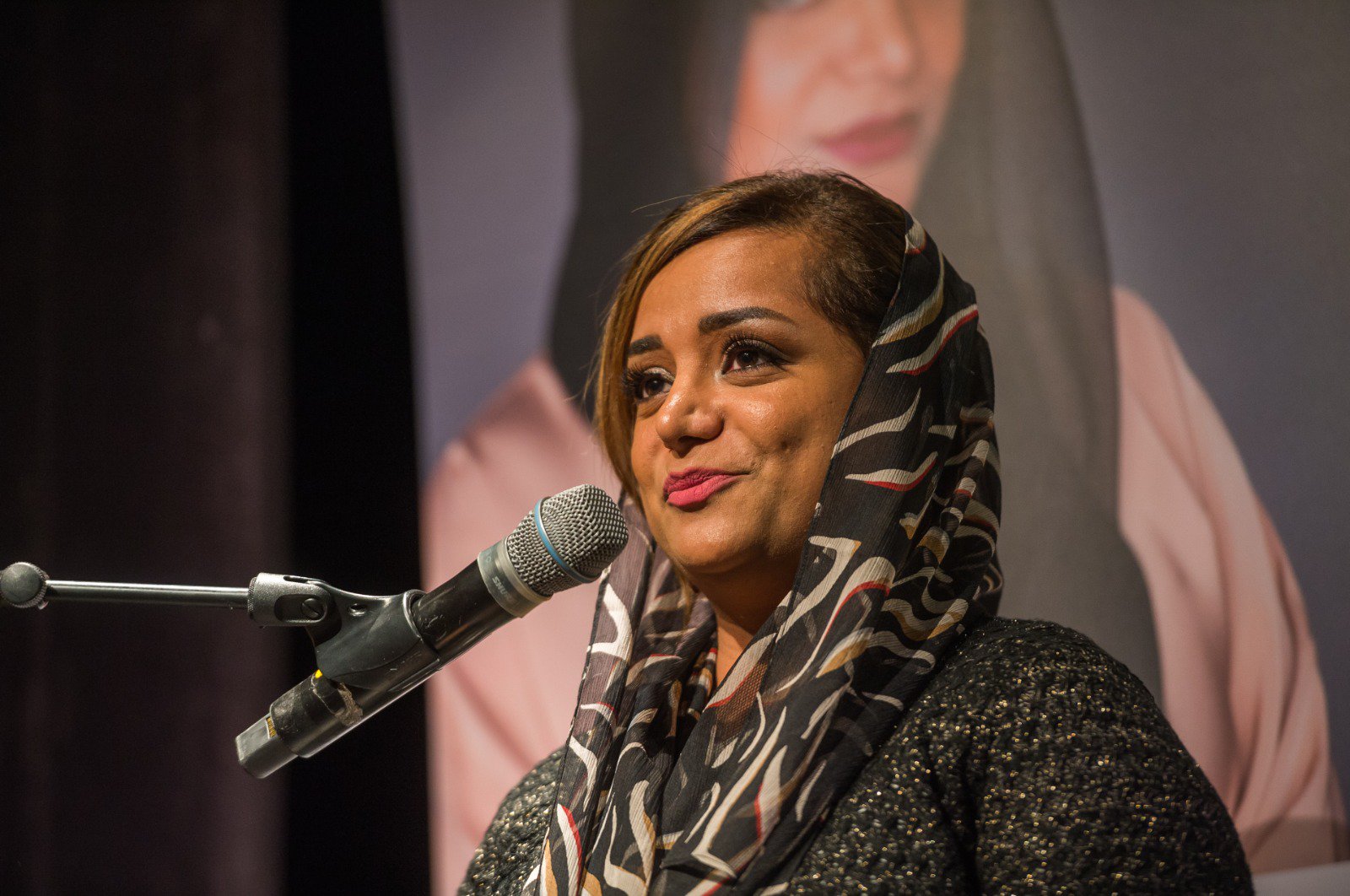Emirati women become a powerful force on UAE’s cultural scene
Sat 01 Sep 2018, 20:20:49

Never one to mince words, Nayla Al Khaja, the United Arab Emirates’ first female director and producer seems to have no issue continually exercising her enviable skill of portraying exotic stories that can grip even the most distant viewer. This assertion was obvious enough as muffled sobbing could be heard scattered throughout the theatre during the screening of her 2016 short, Neighbour.
“Let me be straightforward,” said Al Khaja during the opening of a presentation in Brussels of her two most recent films —including Neighbour and her other work Animal— “I’ve always been a rebel without a cause, so to speak, and do feel sorry for my parents.”
Al Khaja was invited to Brussels by the Embassy of the United Arab Emirates as a capstone moment for the Emirati Women’s Day, celebrated annually on August 28.
“I’ve really wanted to tell stories from a young age. When a lot of the house curtains were damaged from opening them as a theatre, performing for the maid and putting them back, [my parents] probably wondered, ‘when is this going to stop?’” she told a small, amused audience at Brussels’ Centre for Fine Arts on August 30.
Al Khaja is likely to continue to ruin curtains as her passion from filmmaking, coupled with fortunate timing as the UAE enters an exciting period of rapid artistic progression, has allowed her to pursue her goals.
While much of the Arab world has often been typecast as a collection of oppressive states, countries like oil-rich Saudi Arabia and the UAE are steadily attempting to buck this assumption by making their societies more equal in terms of both employment and living standards.
“You see a lot of negative stereotypes about Arab women because we’re painted with one brush. Had there not been a Women’s Day, I would not be in Brussels and people would not be able to see a female filmmaker from that part of the world. It raises our voice elsewhere and I always think that’s a good thing,” she said.
The night’s event concluded the Emirati Embassy’s month-long celebration that honoured the UAE’s women for their outstanding achievements and aimed to
inspire a new generation of even more ambitious individuals.
inspire a new generation of even more ambitious individuals.
“We have made extraordinary progress, but there is still much work to be done. Women like Al Khaja are leading the way and that is why we are here tonight. By celebrating her work, we’re also saluting the achievements of many inspirational and pioneering Emirati women who are making a difference—not just in the UAE, but in the region and across the globe,” said H.E. Mohamed Issa Hamad Abushahab, the UAE’s Ambassador to Belgium.
Thanks to top-level support critical new opportunities are beginning to emerge in certain countries of the Gulf region, some of which have developed without the sort of gender discrimination that would normally stunt their growth.
“We’re celebrating women, not as a cry for help, but to show that women have incredible opportunities in every sector where they can be paid exactly [the same] as their male colleagues and work in unorthodox fields like Formula One drivers, judges or forensic investigators,” Al Khaja explained.
The film industry isn’t alone in achieving near gender parity in the UAE. Women comprise 43% of the Abu Dhabi Securities Exchange, 66% of the public sector workforce, and more than 60% of the student body in most universities.
“Because we’re a young country, there’s no such thing as a gender imbalance in film. Right now, we’re almost 50/50, female and male filmmakers,” said Al Khaja.
The usual kneejerk reaction for some might be to point out that a great deal still needs to be done before societies in the Middle East truly can be called truly egalitarian, but the accomplishments of filmmakers like Al Khaja and others like her is a powerful reminder that women in the UAE are becoming an integral part of the country’s burgeoning cultural landscape.
For the next generation of thinkers, Al Khaja has some advice:
“It sounds boring, but read history. Look at successful figures who really existed. Carl Sagan’s How the Universe Was Made changed my life. Then, close your eyes and imagine you’re stuck on a plane with the person you just read about. What would you ask them?”
No Comments For This Post, Be first to write a Comment.
Most viewed from International
Most viewed from World
AIMIM News
Latest Urdu News
Most Viewed
May 26, 2020
Do you think Canada-India relations will improve under New PM Mark Carney?
Latest Videos View All
Like Us
Home
About Us
Advertise With Us
All Polls
Epaper Archives
Privacy Policy
Contact Us
Download Etemaad App
© 2025 Etemaad Daily News, All Rights Reserved.

.jpg)
.jpg)
.jpg)






.jpg)


.jpg)
.jpg)
.jpg)
.jpg)
.jpg)
.jpg)
.jpg)
.jpg)
.jpg)
.jpg)
.jpg)
.jpg)

















